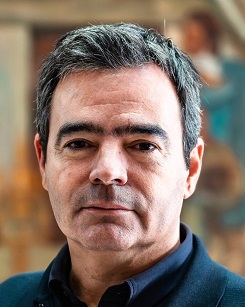Contact
Email:
mbjeronimo@gmail.com
Short project description
Interimperial organizations played a pivotal role in shaping international, domestic, and colonial idioms and repertoires of governance in the twentieth century. This project focuses on one of the most significant yet understudied examples: the Commission for Technical Co-operation in Africa South of the Sahara (CCTA, 1950). Drawing on extensive multi-archival research, it reconstructs the CCTA’s operations, priorities, and institutional trajectory, situating them within broader dynamics of interimperial cooperation and highlighting their long-term consequences. Bringing together politicians, scientists, technicians, and bureaucrats, in multiple official and public meetings addressing a broad range of key issues, the CCTA fostered lasting networks of knowledge production and circulation, supported institutional development and cadre formation, and facilitated policy transfer across Africa and Europe. In a context marked by mounting pressures for decolonization, it both competed and collaborated with international organizations. Following the formal end of most European colonial empires, the CCTA was selectively – and not without tensions – absorbed into the Organisation of African Unity (OAU) in the early 1960s, in one of the clearest expressions of its complex afterlives. The CCTA’s trajectory offers an informative example of how discontinued institutions can persist – albeit in varied forms and degrees – through their expertise and data, personnel and networks, and enduring institutional frameworks and practices. It thus serves as a valuable case study for examining several core themes of the InechO project.
Short biographical sketch
Miguel Bandeira Jerónimo (PhD, King’s College London, 2008) is an Associate Professor of History and a Senior Researcher at the Centre for the History of Society and Culture, both at the University of Coimbra, Portugal. He has previously held research and teaching positions as a Gulbenkian Fellow at the European University Institute (2008), Visiting Assistant Professor at Brown University (2011 and 2012), and Hélio and Amélia Pedroso/Luso-American Foundation Endowed Chair in Portuguese Studies at the University of Massachusetts Dartmouth (2019). In 2025, he will serve as a Simone Weil Fellow at Ludwig-Maximilians-Universität München. He is currently an Associated Researcher with the ERC-funded project InechO.
More recently, his work has focused on trajectories of “repressive developmentalism” in late colonial Africa, on forms of “imperial internationalism” and “international imperialism” since the interwar period, and on the competitive and collaborative dynamics between interimperial and international organisations throughout the twentieth century. He has published regularly, with leading publishers and in reputable journals. He was the author of The ‘Civilizing Mission’ of Portuguese Colonialism (c.1870–1930) (2015), co-author of História(s) do Presente (2020), and co-editor of Internationalism, Imperialism and the Formation of the Contemporary World (2017), Resistance and Colonialism (2019), and Education and Development in Colonial and Postcolonial Africa (2020). Latterly, he edited Os Mundos do (Sub)Desenvolvimento (2023). He (co)coordinated several collective research projects with competitive funding, the last being Humanity Internationalized: Cases, Dynamics, Comparisons (1945–1980), an international research project funded by the Portuguese Foundation for Science and Technology (until 2025).


